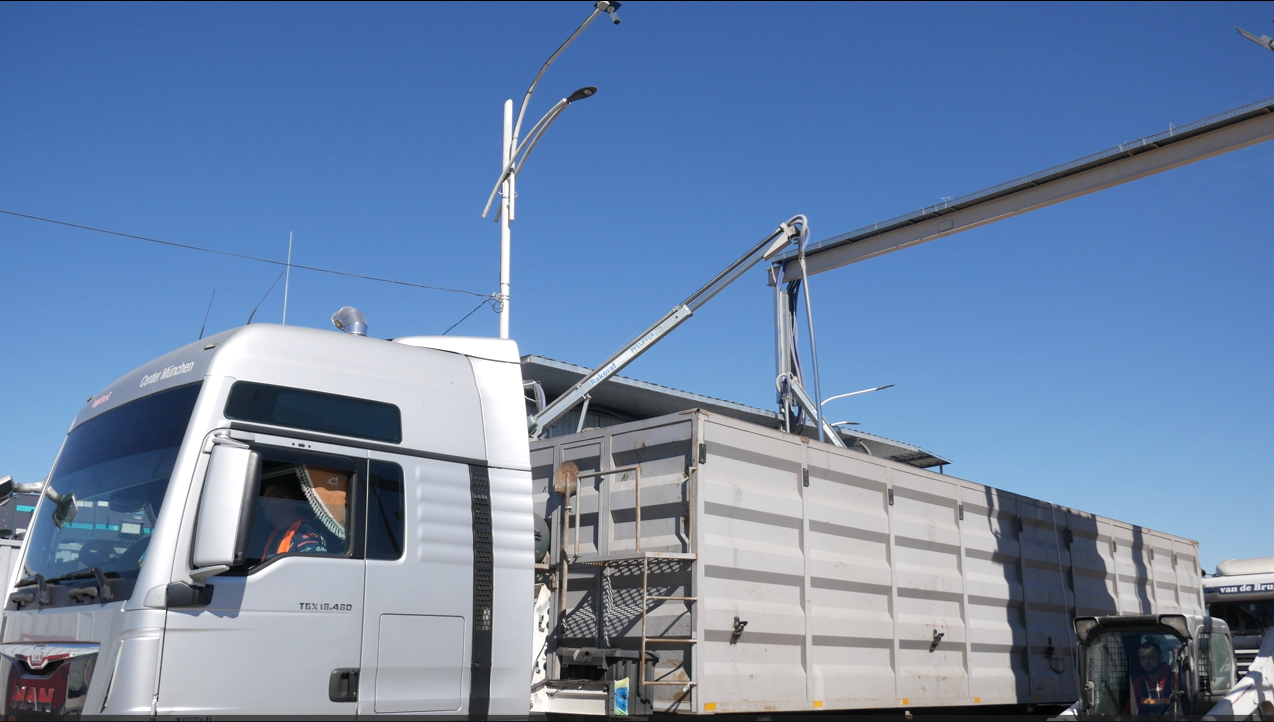In August 2023, USAID, through its Economic Resilience Activity (ERA), delivered two Rakoraf mechanical grain samplers to Nibulon at its Bessarabska branch, a river terminal on the Danube River. These samplers provide a quick and reliable method for sampling grains and oilseeds from open vehicles and delivering the samples to the laboratory. This new equipment enabled Nibulon to increase vehicle processing speeds by 75% daily, facilitate laboratory testing, and accelerate agricultural exports.
The samplers complement two existing ones that were often out of service due to wear and tear. With the new, additional samplers from USAID ERA, Nibulon bolstered the amount of cargo accepted by road and processed 350 vehicles per day at the Bessarabska branch, a 75% increase in capacity.
During the 2023-2024 marketing year, Nibulon used the new samplers to conduct incoming grain quality control on approximately 43,450 vehicles, or 1,1 million tons of grain, representing 90% of the total grain volume entering Nibulon’s Bessarabska branch.
The Bessarabska branch transships grain from road and rail to river transport, primarily bound for Constanta, Romania. After Russia launched its full-scale invasion of Ukraine in 2022 and the ports in Odesa ceased operations, the Bessarabska branch became Nibulon’s main export channel. Nibulon exported 64% of its grain through this terminal in the first quarter of 2023. When the Black Sea Grain Corridor opened, flows through the Bessarabska branch decreased, but it remains an important export route for the agri exporter.
Despite a drone attack that damaged the branch’s warehouses in August 2023, the terminal quickly resumed operations, allowing Nibulon to continue delivering grain to global markets.
By operating the terminal, the company not only exports grain to people who need it but also supports the local economy by paying taxes and creating jobs.





